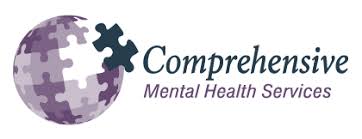Success Stories
07 Feb CASA of Johnson and Wyandotte Counties Receives a $23,200 Grant from the National CASA Association
CASA of Johnson and Wyandotte Counties (CASA) recently received a grant for $23,200 from the National CASA Association to better serve older youth involved in the county court systems due to abuse, neglect, or other forms of maltreatment.06 Feb Health Care Foundation of Greater Kansas City Awards $71,636 Grant to The Whole Person, Inc.
The Whole Person, Inc. was recently awarded a $71,636 grant from the Health Care Foundation of Greater Kansas City to support their Mental Health Services program. The Whole Person (TWP) will use the grant money to support the Mental Health Services program providing individual counseling, group counseling, psycho-educational group counseling, and independent living services.05 Feb J.E. and L.E. Mabee Foundation Awards $100,000 Grant to Metro Lutheran Ministries (MLM)
Metro Lutheran Ministries (MLM) was recently awarded a $100,000 grant from the J.E. and L.E. Mabee Foundation to support their Northland Community Care Services Program.04 Feb Metro Lutheran Ministries (MLM) Receives $15,000 Grant From the Jacob L. and Ella C. Loose Foundation
Metro Lutheran Ministries (MLM) recently received a grant for $15,000 from the Jacob L. and Ella C. Loose Foundation to support direct services to poor and needy children and families in Jackson County/Kansas City, Missouri through MLM’s Community Care Program. Community Care provides food, emergency assistance, and case management to help families break the cycle of poverty in two locations, Midtown (3031 Holmes Street) and Northland (1104 NE Vivion).02 Feb Goppert Foundation Awards $25,000 Grant to Metro Lutheran Ministries (MLM)
Metro Lutheran Ministries (MLM) recently received a grant for $25,000 from the Goppert Foundation to support the development of a new Northland Service Center. A new 4,300 square foot Service Center will be created through a renovation of the former sanctuary of St. James Lutheran Church. Over 3,460 square feet of the former sanctuary will be renovated for the new Service Center and an additional 840 square feet will be added through construction to the existing space. This Service Center will have locations for food storage, three offices for case management, a reception and waiting room for clients, a bathroom, additional storage space, and room to grow. A dock and ramp will be added to aid food deliveries.01 Feb BNSF Railway Foundation Awards Girl Scouts of NE Kansas and NW Missouri a $2,500 STEM Grant
Girl Scouts of NE Kansas and NW Missouri was recently awarded a $2,500 grant from the BNSF Railway Foundation to implement Science, Technology, Engineering, and Math (STEM) programming. Funding will be used to support program areas, including: Troop Leader Training; Community Partner Programs; Camp Programming; and the Outreach Program. Major costs associated to provide these core program areas include: program supplies, program center hosting, and staff salary and benefits. Staff are integral to the STEM Program. For example, the STEM Program manager's expertise is critical for guiding and creating program curriculum, training volunteers, and developing STEM activity guides for the four camp properties.30 Jan Mid-America Regional Council Awards $34,980 Grant to Comprehensive Mental Health Services (CMHS)
Comprehensive Mental Health Services (CMHS) recently received a grant for $34,980 from the Mid-America Regional Council to deliver mental health services to the elderly residents of northeast Jackson County, Missouri. CMHS will address critical mental health issues of elderly individuals through the following services:- Mental health evaluation and assessment;
- Individual therapy;
- Group therapy;
- Case management;
- Information and education services; and
- Community support services.





